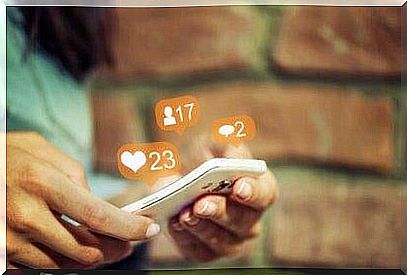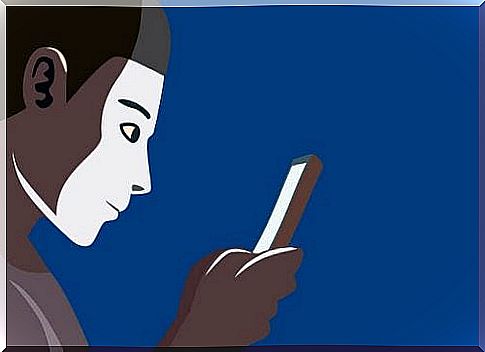Phones Help Worsen Relationships

We have probably all had to struggle with the attractiveness of phones or other electronic devices and we have lost. We felt how the attention of our interlocutor was drawn by flashing lights, giving importance to the latest and “urgent” notifications.
Some have even had to interrupt our speech to answer a call, answer a Whatsapp or study social networks.
Do we forget what a conversation is? Are we bored of listening to others? Are we only seeking the attention of the other when we need help solving our problems or for comfort about something that is hurting us?
Clinical psychologist and sociologist Sherry Turkle has conducted extensive research presented in her wonderful book Reclaiming Conversation (2017). She claims that today’s teens have lost 40% of their empathic capacity, as well as their ability to engage in deep conversation. Cell phones have a lot of responsibility in this.
New technologies have brought with them a profile whose main objective is to be hyper-connected at all times but at a superficial level. Multitasking has taken hold and many people feel like they are wasting time when they have two consecutive breaks.
“True love is the absence of the urge to glance at the phone in the presence of a loved one.”
-Alain de Botton-

I share, then I exist
The digital world we are immersed in is governed by different standards from those we knew before using cell phones as an extension of our hands. Today, a good part of social and professional interactions take place through electronic objects such as computers, phones and tablets.
Face-to-face conversation has taken a back seat. Moreover, some see it as a real waste of time. If we have to solve a professional problem we send an email, if we have to ask for forgiveness we send a WhatsApp.
Dealing with situations of conflict or a significant emotional load can generate a high level of anxiety in us. New technologies offer us the opportunity to partially reduce this anxiety.
Young people justify the use of new means of communication as an easier and faster way to express our opinions. They claim that wearable devices allow them to rewrite what they want to say, correct their mistakes, or avoid tense situations they wouldn’t know how to resolve face-to-face.
The problem is that through screens we lose one of the most rewarding aspects of conversation: non-verbal language. It matches the other person’s actual gestures, intonations, looks, and emotions. According to experts, 70% of communication takes place through non-verbal language. Without it there is nothing.
The digitization of humanity
Currently, we are largely replacing human reality with “memes” or emoticons. It is difficult for us to maintain content and sentimental conversations for extended periods of time.
We are part of and give life to a society that has ever more difficulty managing its own emotions, facing difficulties and taking responsibility. If you don’t share anything on social media, it’s like you don’t exist. If you don’t share your vacation, it might seem like you haven’t had one or taken advantage of it. So, what you share will be a reflection of who you say you are, but never the reality.
In these circumstances, it is more difficult to have empathy, that is to say, put yourself in the other’s shoes and try to understand their emotions and thoughts. We are talking about a purely visual, superficial and changing digital world.
On the other hand, there is a great demand for new and constant stimulation. If boredom does emerge in the classroom, cell phones have a lot of power as distractors. The same thing happens when boredom appears while watching a series, movie, or book.

The conversation is in danger of extinction
Spaces that previously represented an opportunity to establish a conversation no longer perform this function. In public transport, many people watch their screens. In the queues of supermarkets and in the shops, we have headphones in our ears and we take a look at our networks.
People no longer speak and if they speak, it is to evoke the information they see on their phones. We have become soundproof machines. Machines that are no longer aware of what is happening around them. We do not argue with strangers and we do not pay attention to events unfolding alongside us. We move from one application to another, trying to break the boredom of silence.
We have thousands of social media contacts at our disposal. With them, we can interact, exchange “likes” or start a chat, but we get bored in a few minutes because “it’s not enough, it’s not what I’m looking for”. We are eternally dissatisfied who are unable to generate genuine relationships. But, how do we hope to know how to listen if no one is teaching us the value of conversation and empathy?
Where has the ability to feel deeply
Our current pace of life is hectic. It is based on hyper-connectivity and multitasking. When we respond to an email from our boss, we take a look at a friend’s latest Facebook post and look for the weather forecast for the weekend. We are reading a book but we keep our cell phone by our side so that we can immediately respond to any WhatsApp that might arrive.
We demand that our children do not use their cell phones at the table, but if someone calls us, we answer immediately. Having to be constantly available on social networks causes us stress. However, having to be “disconnected” for too long also causes us a lot of anxiety.
Certain companies seem to measure the degree of competence according to the availability of workers in their professional networks and the use they make of them. A boss can fire us if we don’t respond to an email by 11 p.m. In friendships, the one who responds quickly seems to have more value.
We are hurt when we are left with an unanswered “lu”. We even check the last time people logged in. Are we really more efficient by constantly using new technologies? Are we best friends when we respond quickly even if the response is limited to a shallow emoticon? We confuse speed and quantity with quality and value.
We don’t need more phones but more space to exchange
Small moments of solitude are enough to put the brakes on the noise of hyper-connectivity and to listen to our own feelings. They allow us to have space to actually talk and listen. They allow us to have time to feel, with no phones in our way.
Face-to-face conversations are those that build and strengthen relationships. Let’s see how the other person is feeling, listen to their ideas and concerns. We can empathize with her because we have before us her joy or her suffering.
Deep and personal conversations awaken emotions in us. They give us space to open up and catch our breath. Thus, we feel listened to and respected. In-person conversations give us the opportunity to generate new ideas even when we exchange seemingly insignificant comments.
Real connections, personal thoughts and shared emotions are the ones that keep us authentically connected.










